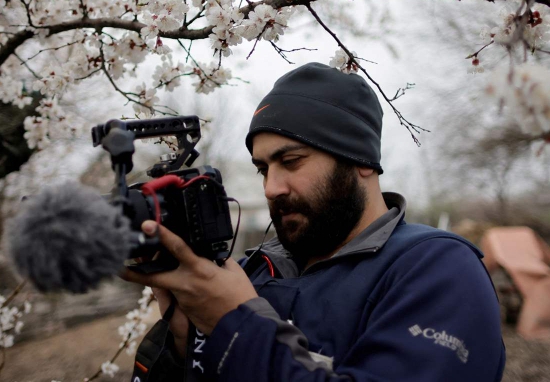British news agency Reuters on 7 December released the results of an investigation into the killing of journalist Issam Abdallah on 13 October, acknowledging that he was killed by “an Israeli tank crew.”
“Reuters spoke to more than 30 government and security officials, military experts, forensic investigators, lawyers, medics and witnesses to piece together a detailed account of the incident,” the report by the news agency reads.
It adds that investigators got ahold of video footage from other media outlets at the scene, as well as high-resolution satellite images and shrapnel from the Israeli attack.
“We condemn Issam’s killing. We call on Israel to explain how this could have happened and to hold to account those responsible for his death and the wounding of Christina Assi of the AFP, our colleagues Thaier Al-Sudani and Maher Nazeh, and the three other journalists,” Reuters Editor-in-Chief Alessandra Galloni said.
When presented with the findings of the two-month-long probe by the UK news agency, Israeli army spokesman Lieutenant Colonel Richard Hecht retorted: “We don’t target journalists.”
According to the Committee to Protect Journalists (CJP), Israeli attacks on the occupied Palestinian territories and the southern Lebanese border have killed 59 journalists as of 7 December.
“[Journalists”] in Gaza, in particular, have paid, and continue to pay, an unprecedented toll and face exponential threats. Many have lost colleagues, families, and media facilities and have fled seeking safety when there is no safe haven or exit,” the CJP report reads.
The Reuters investigation was released on the same day as Human Rights Watch (HRW) and Amnesty International announced the results of their own probe into Abdallah’s murder, determining that Israeli soldiers shot artillery shells at journalists near the border on October 13 in what the NGOs say must be considered war crimes.
“Evidence indicates that the Israeli military knew or should have known that the group of people they were firing on were civilians,” HRW says, saying that these circumstances make the attack a “war crime.”
“This is an unlawful and apparently deliberate attack on a very visible group of journalists,” the HRW statement added.
“No journalist should ever be targeted or killed simply for carrying out their work. Israel must not be allowed to kill and attack journalists with impunity,” said Aya Majzoub, Amnesty’s deputy regional director.
Reuters faced significant criticism for failing to acknowledge Israel’s role in Abdallah’s killing in the days following 13 October, when, at most, the British news agency reported he was killed by tank fire “coming from the direction of Israel.”
Related posts
Categories
- Advertisements (1)
- Agriculture (45)
- Breaking News (26)
- Business (598)
- Crime (987)
- Education (319)
- Entertainment (128)
- Features (13)
- For The Records (43)
- Foreign News (1,186)
- Health (219)
- Home News (332)
- Interview (9)
- Judiciary (348)
- Lifestyle (140)
- Local News (111)
- National News (1,447)
- Opinion (26)
- Politics (1,004)
- Religion (157)
- Science and Technology (125)
- Security (680)
- Sports (878)
- States' News (815)
- Transportation (327)
- Uncategorized (10)

